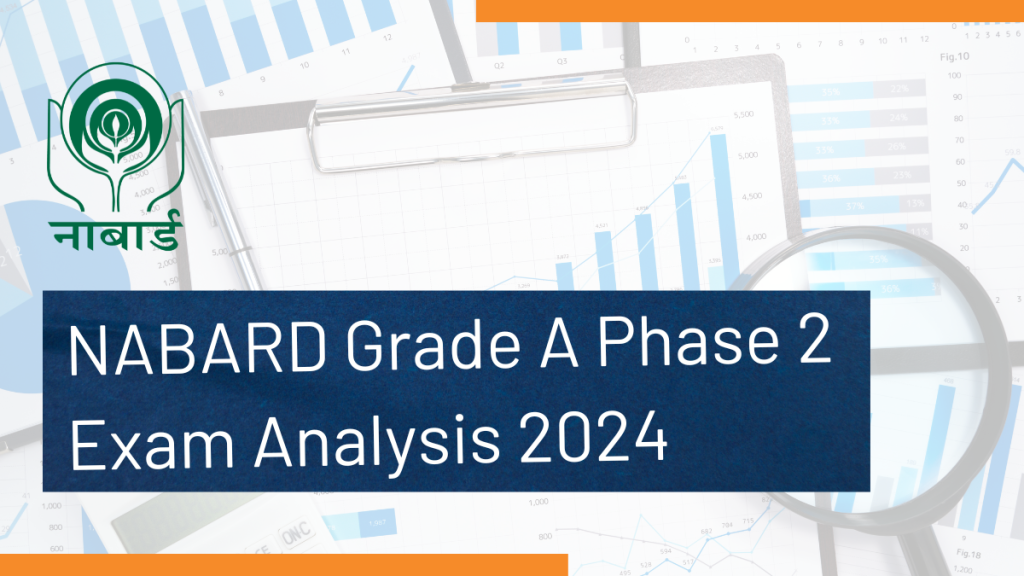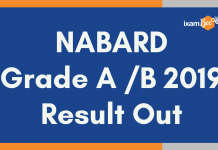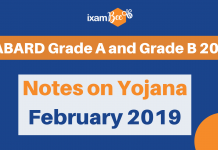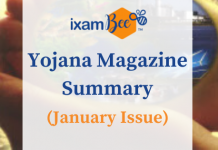The NABARD Grade A Phase 2 exam is a crucial step in the journey to becoming a part of the National Bank for Agriculture and Rural Development. This comprehensive examination evaluates a candidate’s knowledge, skills, and aptitude for tackling the complex challenges of rural development. In this blog, we will provide a thorough NABARD Phase 2 exam analysis of the recent exam, covering key aspects such as the exam pattern, syllabus, difficulty level, and preparation strategies.

Whether you’re a seasoned aspirant or just starting your preparation, understanding the intricacies of the NABARD Grade A exam is essential for success. By analyzing past trends, exam patterns, and candidate experiences, we aim to equip you with the insights needed to excel in this competitive examination.
NABARD Grade A Phase 2 Exam Pattern
For generalist posts, Paper I and Paper II (Economic and Social Issues and Agriculture and Rural Development) are the two mandatory papers. For specialist posts, Paper II deals with the concerned stream of the candidate. Let’s check them out in detail.
Paper I: General English (Descriptive)
NABARD Grade A Phase 2 Paper I is a descriptive English paper for both generalist and specialist posts, which tests the candidate’s ability to write essays, letters, reports, and precis. This paper has three questions and carries 100 marks. This paper provides the candidate with an option to complete it in 90 minutes. The answers should be typed on the keyboard. It assesses the aspirant’s command over English, their critical thinking ability, and their potential to convey sophisticated ideas lucidly.
Paper II: Subject-Wise Paper
For generalist posts, the NABARD Grade A Phase 2 Paper II consists of objective-type and 6 subjective questions based on Economic and Social Issues (ESI) and Agriculture and Rural Development (ARD). There are 30 objective questions in the paper, and the total marks are 50. Candidates get 30 minutes for this section, so time management is very crucial for this paper. For the 6 subjective-type questions, there are a total of 50 marks to be scored in 30 minutes as well.
For specialist posts like IT, Legal, Finance, Agriculture, etc the NABARD Grade A Phase 2 Paper II also carries both objective-type questions and descriptive-type questions. The only difference in stream-specific NABARD exams is that the Paper II descriptive questions will be stream-specific.
Now that we have an overview of the NABARD Grade A syllabus and overall exam pattern, let us move on to understand the NABARD Grade A Phase 2 exam of this year.
NABARD Grade A Phase 2 Analysis: Generalist Stream
This time around, NABARD Grade A Phase 2 Generalist was moderately tricky, and the objective section turned out to be very challenging. Even in previous years, questions were not so direct, and accuracy is the key in this section. The Generalist stream candidates saw an objective section that required accuracy as it was not only harder but also more nuanced than in the other streams. This indicates the usual pattern that when the Generalist paper is tough, then the cutoff comes out lower. However, on such a paper, if one could have maintained accuracy and also managed time, then the final score would not have been in any way too low to qualify.
The descriptive part, however, was relatively easy. The questions were familiar, and hence students who had well prepared with NABARD Grade A mock tests and daily practices would have found this section relatively easy. For example, one of the compulsory 15-mark questions was on post-harvest infrastructure, value addition, and storage, which emphasized their importance in agriculture. This must have been a question that the students must have encountered in the NABARD Grade A Phase 2 mock test and also in the daily ixamBee classes since it comes close to the syllabus of the NABARD Grade A Phase 2.
Other significant 15-markers consisted of the financial inclusion programs undertaken from 2014 to 2024 and asked students to provide suitable government schemes while answering. The 10-marker questions also included the topic in general as well, PM Vishwakarma Scheme and PM Swamitva Scheme. Again, those students who had prepared themselves with the NABARD Grade A previous year question papers or had covered the NABARD Grade A Phase 2 online course classes would be prepared for this.
NABARD Grade A Agriculture Stream
The NABARD Grade A Agriculture stream was less challenging than the General stream, majorly due to its descriptive section. The questions were more dynamic this year, with greater emphasis on current agricultural practices and government initiatives that are working towards boosting the agricultural sector. Among the 15-marker questions was one about the present scenario of Indian agriculture and the different government programs that have been brought in to uplift its development. The question reflected real-life problems in the agricultural sector, and the candidate had to understand and present a much wider picture. Questions about protected cultivation in horticulture, floriculture, and forestry tested the student’s knowledge of modern agricultural techniques.
The 10-marker questions in this stream were more specific. There were questions about dryland farming and watershed management. For instance, questions about the classification of watersheds-one of the topics that have been in previous year’s papers-can be asked. Questions on such lines are familiar, even less difficult, for those who have prepared by going through NABARD Grade A Phase 2 previous year question papers.
The objective part for the agriculture students was relatively straightforward, especially for those with a background in the field.
NABARD Grade A Development Management Stream
The questions in the Development Management stream referred to similar lines of previous years but only with an eye on the concepts of economic development. The 15-marker questions came under the topics of cooperative marketing, its importance in rural India, and income inequality and its causes. These questions required higher comprehension regarding economic theories and their application in the Indian context. Ten-marker questions covered topics on poverty reduction initiatives and the Rostow model of economic development.
Success in this section was, like all the other streams, weighed on how well students could present the answers to the questions. The higher the students could clearly explain the key concepts, back up the data with them, and reference the correct scheme, the better their grades would be.
In the NABARD Phase 2 exam analysis, there is a mix in the difficulty levels across streams, but preparation seems to have won. Those who have used NABARD Grade A online courses and those who have taken mock tests seem to have prepared more. For the General stream, accuracy was the prime concern. For Agriculture and Development, it mattered how well they could outline their knowledge in the answers.
Students should continue to fine-tune their preparation, making appropriate use of the NABARD Grade A Phase 2 mock tests, analyzing the NABARD Grade A Phase 2 previous year papers, and keeping themselves up-to-date with the current schemes and policies. Though this year’s exam has posed its own problems, those who maintained focus on accuracy and presentation have a strong chance of success.
Lessons Learned from this Year’s NABARD Grade A Phase 2 Exam
As seen above, the nuances and patterns in this year’s NABARD Grade A Mains exam can teach students a lot. Whether you will start your preparation for the upcoming NABARD Grade A Interview or for next year’s recruitment cycle, keep in mind the following lessons to be learned from this paper:
- Focus on Accuracy in Generalist Stream: For the very first time, the Generalist stream looks more difficult than any other stream in the objective section. Accuracy is what one needs rather than attempting more questions, especially in the objective section. If it gets tougher, then the cutoff tends to be lower. However, accuracy by candidates would stand a good chance of clearing the exam.
- Refine your skills in writing descriptive questions: The descriptive part was not that tough in all the streams apart from the fact that well-structured and clear answers were expected with respect to sound knowledge about the topics. The presentation is very critical, especially when the questions are related to financial inclusion in the Generalist stream, agricultural techniques in the agriculture stream, and cooperative marketing in the Development stream. Useful government schemes and data will make you different in your answers.
- Dynamic Topics in Agriculture A student of agriculture should be exposed to dynamic topics like watershed management and protected cultivation, wherein the knowledge is not only expected to be more practical but also represents its real-world application. Questions on government initiatives featured mainly, hence the need for updates on agricultural policy designed in India.
- Concepts in Economic Development for Development Management: Students of Development Management must understand fully the economic theories such as Lewis’s Theory of Population and Rostow’s model of economic growth. The conceptual questions require very good theoretical knowledge and, at the same time, the ability to correlate them with the economic challenges of India.
Conclusion
Thus, it can be derived that the NABARD Grade A Phase 2 exam proves to be an extremely challenging opportunity that demands a strong and well-directed attempt. The analysis of this year’s exam will enable the candidates to prepare for the next attempts with much better reliability, accuracy, quality of presentation, and dynamic topics in mind. Students can do enough practice with expertly created ixamBee NABARD Grade A study courses, mock tests, and descriptive writing practice with us and be confident. Remember, with the right preparation and a positive attitude, you would be sure to shine in the NABARD Grade A exams and get one step closer to that long-aspired career of agricultural and rural development. Stay focused, keep practicing-there you go!
At ixamBee, we specialize in providing comprehensive online courses for government exams and online courses for government jobs. Our expertly designed courses for government jobs cater to a wide range of upcoming government exams. Whether you’re preparing for specific courses for government exams or seeking general guidance, ixamBee offers the resources like Beepedia previous year papers, SSC CGL, SSC CHSL, SSC MTS and other mock tests to succeed in exams like RBI Grade B, SEBI Grade A, NABARD Grade A, RRB NTPC, SSC MTS, NIACL Assistant, and more.
Also Read:
The Best NABARD Grade A Interview Tips For Better Success
RBI Grade B Interview Questions & Experience: A Comprehensive Guide
IBPS SO Reasoning Preparation with Sample Questions















